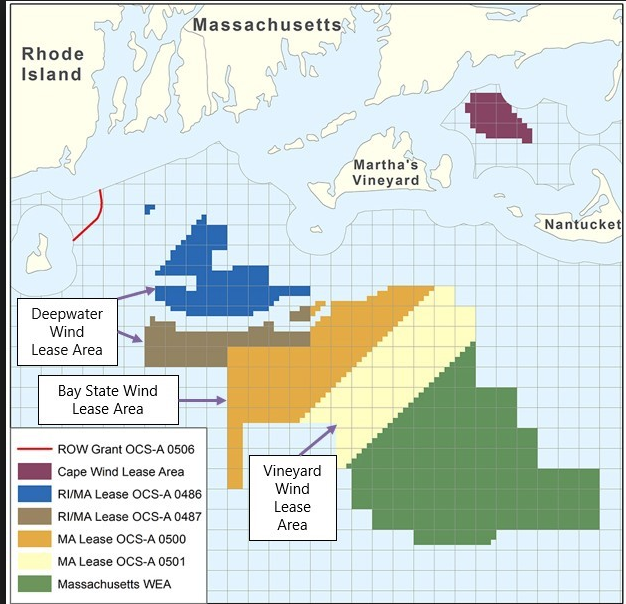Offshore wind power developer Vineyard Wind may miss its late 2019 construction start, with a delay in the federal Bureau of Ocean Energy Management’s review of the project’s environmental impact statement.
The plan for 84 wind turbines off Martha’s Vineyard, Mass., was poised for a formal start to onshore construction activity in December 2019. But on Tuesday the company announced BOEM would not meet an anticipated July 12 milestone for approving the final EIS for the 800-megawatt project.
“We understand that, as the first commercial scale offshore wind project in the U.S., the Vineyard Wind project will undergo extraordinary review before receiving approvals,” the company said in revealing the delay. “As with any project of this scale and complexity, changes to the schedule are anticipated.”
BOEM and the company are under pressure from Massachusetts and Rhode Island fishermen who fear loss of access to fishing grounds, and dangers navigating turbine arrays. BOEM and Coast Guard officials last year put wind developers on notice that they will be required to plan for safe transit lanes through the wind towers.
Local conservation groups are raising questions, too, especially over the endangered northern right whales in southern New England waters. A few more than 400 of the right whale population survive, and those concerns are stoked again this summer with six dead animals so far found in Canada’s Gulf of St. Lawrence.
Massachusetts Gov. Charlie Baker is a big booster of offshore wind development, and Vineyard Wind has obtained state permits and a power purchase agreement. But the plan hit a new bump this week when the Edgartown Conservation Commission on Martha’s Vineyard voted against granting a cable permit for Vineyard Wind.
The developers want to lay a pair of 400-megawatt transmission cables from the site 15 miles offshore to a landfall at Barnstable on Cape Cod, passing a mile off Chappaquiddick. Local fishermen raised concerns over what construction and any electromagnetic field effects might have on fish populations.







.jpg.small.400x400.jpg)